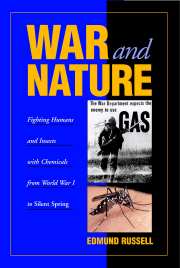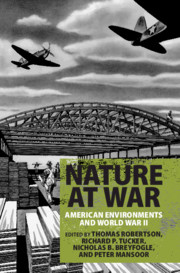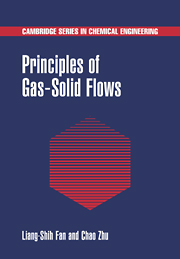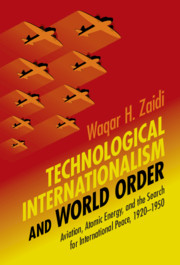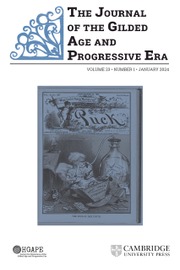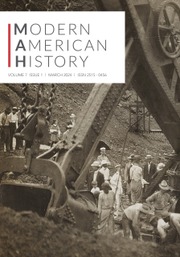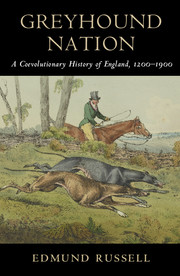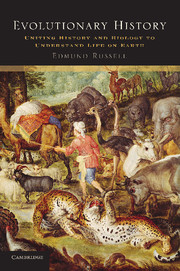War and Nature
Fighting Humans and Insects with Chemicals from World War I to Silent Spring
$32.99 (G)
Part of Studies in Environment and History
- Author: Edmund Russell, University of Kansas
- Date Published: February 2001
- availability: Available
- format: Paperback
- isbn: 9780521799379
$
32.99
(G)
Paperback
Other available formats:
Hardback
Looking for an examination copy?
This title is not currently available for examination. However, if you are interested in the title for your course we can consider offering an examination copy. To register your interest please contact [email protected] providing details of the course you are teaching.
-
While cultural and scholarly traditions have led us to believe that war and control of nature are separate, there are many more similarities than most people might suspect. Tracing the history of chemical warfare and pest control, Edmund Russell shows how war and control of nature coevolved. Ideologically, institutionally, and technologically, the paths of chemical warfare and pest control intersected repeatedly in the twentieth century. War and Nature helps us to understand the impact of war on nature and vice versa, as well as the development of total war, and the rise of the modern environmental movement. Edmund Russell is an assistant professor in the Division of Technology, Culture, and Communication in the School of Engineering and Applied Science at the University of Virginia. This is his first book.
Read more- Unusually synthetic; weaves discussion of ideas, technology, nature, and warfare to create a unified narrative
- Clearly written; although a scholarly book, it is accessible to a general audience
- Timely; chemical weapons and pesticides reappear regularly in the headlines
Reviews & endorsements
"...this fine study is a welcome addition to American environmental, military, and scientific historical scholarship and deserves a wide readership." American Historical Review
See more reviews"Well written and readable, and the author's theories are well supported." Military Review
"War and Nature does an excellent job of weaving together research on chemical use against human and insect enemies of the United States from World War I to the present. The author did a thorough job in doing research for his doctoral dissertation, and has presented it in a very readable fashion. The footnotes and index to this work are quite thorough and useful...In all this is an interesting presentation of material that documents one aspect of the military industrial complex that has become an integral part of our lives. Highly recommended for students of history, business, and the environment." E-Streams
"Edmund Russell's fascinating and provocative study explores several seemingly disparate historical realities - U.S. military strategy and propaganda during World Wars I and II, the rhetoric of the Cold War, and post-1945 insecticide research and advertising - to show the subtle connections among them. This brilliany and original book brings together important strands of twentieth-century American history in fresh and disturbing ways." Paul Boyer, Washburn Observatory
"Russell admirably achieves his purpose, reinforcing his case with careful scholarship." Military History
"This topical, judicious book will appeal to environmentalists, academics, and sophisticated lay readers." Publisher's Weekly
"An interesting and highly unusual comparison of the parallel--but sometimes intersecting--chemical wars waged against humans and bugs...For students of both war and ecology, this is a remarkable and fascinating study that draws heavily on primary sources; it is particularly timely as awareness grows of what war does to the environment, as well as to people." Eliot A. Cohen, Foreign Affairs
"[A] careful, factual, well-documented examination of the scientific and rhetorical intersection of chemical warfare and pest control. The possibility of this coverage would never have occurred to me, or I suspect to most people, but Russell shows, in convincing detail, how it exists and operates." Washington Post Book World
"Edmund Russell's fascinating and provocative study explores several seemingly disparate historical realities - U.S. military strategy and propaganda during World Wars I and II, the rhetoric of the Cold War, and post-1945 insecticide research and advertising - to show the subtle connections among them. This brilliant and original book brings together important strands of twentieth-century American history in fresh and disturbing ways." Paul Boyer, Washburn Observatory
"Elegant in its simplicity." Journal of the History of Medicine
Customer reviews
Not yet reviewed
Be the first to review
Review was not posted due to profanity
×Product details
- Date Published: February 2001
- format: Paperback
- isbn: 9780521799379
- length: 334 pages
- dimensions: 228 x 153 x 24 mm
- weight: 0.45kg
- contains: 15 b/w illus.
- availability: Available
Table of Contents
1. Introduction
2. The long reach of war (1914–17)
3. Joining the chemists' war (1917–18)
4. Chemical warfare in peace (1918–37)
5. Minutemen in peace (1918–37)
6. Total war (1936–43)
7. Annihilation (1943–5)
8. Planning for peace and war (1944–5)
9. War comes home (1945–50)
10. Arms races in the Cold War (1950–8)
11. Backfires (1958–63)
12. Epilogue.
Sorry, this resource is locked
Please register or sign in to request access. If you are having problems accessing these resources please email [email protected]
Register Sign in» Proceed
You are now leaving the Cambridge University Press website. Your eBook purchase and download will be completed by our partner www.ebooks.com. Please see the permission section of the www.ebooks.com catalogue page for details of the print & copy limits on our eBooks.
Continue ×Are you sure you want to delete your account?
This cannot be undone.
Thank you for your feedback which will help us improve our service.
If you requested a response, we will make sure to get back to you shortly.
×
